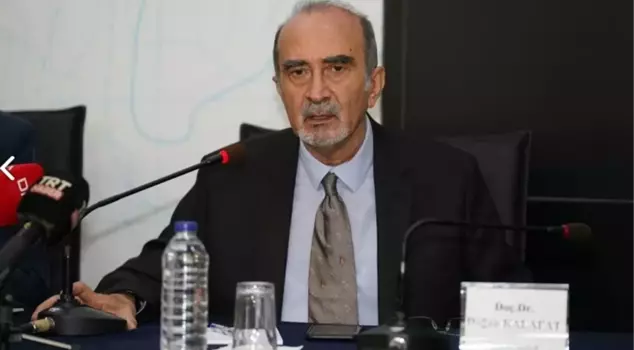
11.07.2024 13:20
Former Director of Kandilli Observatory at Boğaziçi University, Assoc. Prof. Dr. Doğan Kalafat, passed away at the age of 65. Kalafat had pioneered the installation of the first broadband seismic stations in Turkey using satellite systems and the investigation of faults. A ceremony for Kalafat will be held tomorrow at 10:30 am at Fatin Gökmen Conference Hall.
The Regional Earthquake-Tsunami Monitoring and Evaluation Center Director Assoc. Prof. Dr. Doğan Kalafat from the Kandilli Observatory and Earthquake Research Institute of Boğaziçi University has passed away.
THE FUNERAL WILL BE HELD TOMORROW
According to the statement made by the university, a ceremony will be held tomorrow at 10:30 am in the Fatin Gökmen Conference Hall for Kalafat, who passed away at the age of 65. After the noon prayer at Zincirlikuyu Mosque, Kalafat's funeral will be held at Zincirlikuyu Cemetery.
WHO IS DOĞAN KALAFAT?
Born on May 26, 1959, in Van Erciş, Kalafat started working as a geophysicist at the Kandilli Observatory and Earthquake Research Institute Seismology Laboratory of Boğaziçi University in 1984 and served as the laboratory manager in the same department until 2004.
Afterwards, Kalafat became the Director of the National Earthquake Monitoring Center and held this position until 2015. He then started his duty as the Director of the Regional Earthquake Tsunami Monitoring Center, which he continued until June of last year. Assoc. Prof. Dr. Kalafat, who has made many contributions to the development of geophysics in Turkey and the work of the Kandilli Observatory and Earthquake Research Institute of Boğaziçi University, pioneered the investigation of wide-band seismic faults with satellite systems in the country.
Assoc. Prof. Dr. Doğan Kalafat conducted studies on "Determining the Earthquake Location," "Analysis and Reading of Seismograms," "Establishing a Seismic Network and Calculating Magnitude Equations for Seismic Stations," "Investigating the Local Crust Structure for Two-Center Solutions," "Earthquake Catalog Studies," "Fault Plane Solution/Moment Tensor Inversion Studies," "Macroseismic Studies," and "Geological Field Observation."